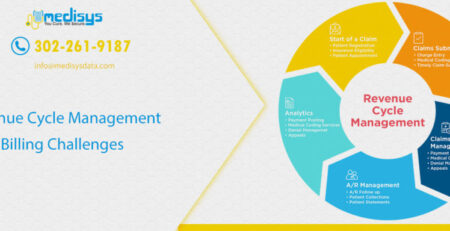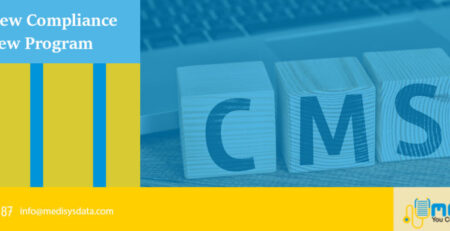The Medicaid program in Florida provides medical services and assistance to low-income individuals and families. To participate in the Medicaid program, healthcare providers must meet several general requirements set forth by the Agency for Health Care Administration (AHCA). These requirements include licensure and accreditation, enrollment in Medicaid, compliance with state and federal regulations, participation in quality assurance activities, and maintenance of accurate records of services provided. Meeting these requirements is crucial for healthcare providers to participate in the Medicaid program and provide quality care to low-income individuals and families. Let’s understand these general requirements for Medicaid providers in Florida in detail:
General Requirements for Medicaid Providers in Florida
1. Licensure and Accreditation
Licensure and accreditation are critical requirements that healthcare providers must meet to participate in the Medicaid program in Florida. These requirements help to ensure that providers are qualified to provide medical services and that they meet the necessary standards of quality and safety. Licensure is the process by which healthcare providers obtain a license to practice in the state of Florida. The licensing process includes completing education and training requirements, passing a national exam, and meeting other requirements specific to the provider’s field of practice. In addition, providers must maintain their license by meeting continuing education requirements and complying with state laws and regulations. The licensing process helps to ensure that providers have the necessary knowledge and skills to provide medical services to Medicaid beneficiaries.
Accreditation is a voluntary process by which healthcare providers seek to demonstrate that they meet certain standards of quality and safety. Accreditation is typically awarded by an independent accrediting organization, and it involves a rigorous review of the provider’s policies, procedures, and practices. Providers who are accredited have demonstrated their commitment to providing high-quality medical services and have undergone an external review to ensure that they meet established standards. While accreditation is not required to participate in the Medicaid program in Florida, it can be an important credential for healthcare providers who want to demonstrate their commitment to quality and safety.’
2. Enrolled in Medicaid
Enrolling in Medicaid is a critical requirement for healthcare providers who wish to participate in the program and receive reimbursement for services provided to Medicaid beneficiaries. To enroll in Medicaid in Florida, providers must first obtain a National Provider Identifier (NPI) and then complete the enrollment process through the Florida Medicaid Management Information System (FMMIS). The enrollment process involves submitting an enrollment application, providing required documentation, and completing a provider agreement. Once enrolled, providers must comply with all applicable Medicaid program requirements, including maintaining accurate records of services provided and participating in quality assurance activities.
The FMMIS is the online portal used by healthcare providers to enroll in the Medicaid program, verify eligibility, submit claims for reimbursement, and manage other aspects of their participation in the program. Providers must complete the enrollment process through the FMMIS and receive approval from the Medicaid program before providing services to Medicaid beneficiaries. The FMMIS is also used to manage the payment process for Medicaid claims, including verifying eligibility, processing claims for reimbursement, and issuing payments to providers.
3. Compliance
Providers must comply with all applicable state and federal laws, rules, and regulations related to Medicaid. This includes complying with the provider agreement with the Medicaid program, which outlines the provider’s obligations and responsibilities. Providers must also comply with the AHCA Provider General Requirements and the Practitioner Services Handbook, which provide specific guidance on billing, documentation, and quality assurance requirements.
Providers must also comply with Medicaid program integrity initiatives designed to prevent fraud, waste, and abuse. These initiatives include audits, reviews, and investigations that are conducted by the AHCA and other state and federal agencies. Providers must cooperate with these initiatives and provide complete and accurate information when requested. Failure to comply with program integrity initiatives can result in sanctions, including fines, exclusion from the Medicaid program, and even criminal prosecution.
4. Quality Assurance
Quality Assurance (QA) is a critical aspect of Medicaid providers’ participation in the program. It is a process that involves monitoring and evaluating the quality of services provided by healthcare providers to Medicaid beneficiaries. The goal of QA is to ensure that beneficiaries receive high-quality care that meets or exceeds state and federal standards. Medicaid providers in Florida are required to participate in QA activities as a condition of their participation in the program.
The AHCA implements various QA activities, including provider site visits, claims review, and beneficiary satisfaction surveys, to monitor the quality of care provided to Medicaid beneficiaries. Providers may also be required to participate in peer review activities, which involve an evaluation of the quality of care provided by other healthcare professionals. The results of these QA activities are used to identify areas for improvement and to develop strategies to enhance the quality of care provided to Medicaid beneficiaries. By participating in QA activities, Medicaid providers can improve the quality of care they provide and ensure that beneficiaries receive the best possible medical services.
5. Maintenance of Records
Providers must keep all records for a minimum of five years from the date of service or as required by law, whichever is longer. These records should include documentation of all services provided, such as medical history, physical examination findings, diagnoses, treatment plans, and progress notes. Providers should also keep records of all medications prescribed or administered, as well as any lab or imaging results. In addition to keeping records of services provided, providers must also document any billing or claims submitted to Medicaid. Providers must maintain complete and accurate billing records, including invoices, receipts, and claim forms, for a minimum of five years from the date of service or as required by law.
These records should include the patient’s name, date of service, description of services provided, and any payments received from Medicaid or other sources. Providers must also keep records of any denied or rejected claims, as well as any appeals or resubmissions of claims. Maintaining accurate and complete records is essential for Medicaid providers in Florida. These records serve as evidence of the services provided, the reimbursement received, and the compliance with Medicaid regulations. By keeping thorough records, providers can ensure proper reimbursement for services, comply with legal requirements, and provide quality care to Medicaid beneficiaries.
We hope that this article has provided you basic understanding of general requirements for Medicaid providers in Florida. Medisys Data Solutions is a leading billing service provider for healthcare providers, including those participating in the Medicaid program in Florida. Our comprehensive billing and coding services include claims processing, denial management, and appeals. Medisys offers customized billing solutions to meet the specific needs of each provider and improve their Medicaid reimbursements. By partnering with us, Medicaid providers can focus on providing quality care to their patients while leaving their billing and coding processes in the hands of experienced professionals. To know more about our medical revenue services Florida, contact us at info@medisysdata.com / 888-720-8884












